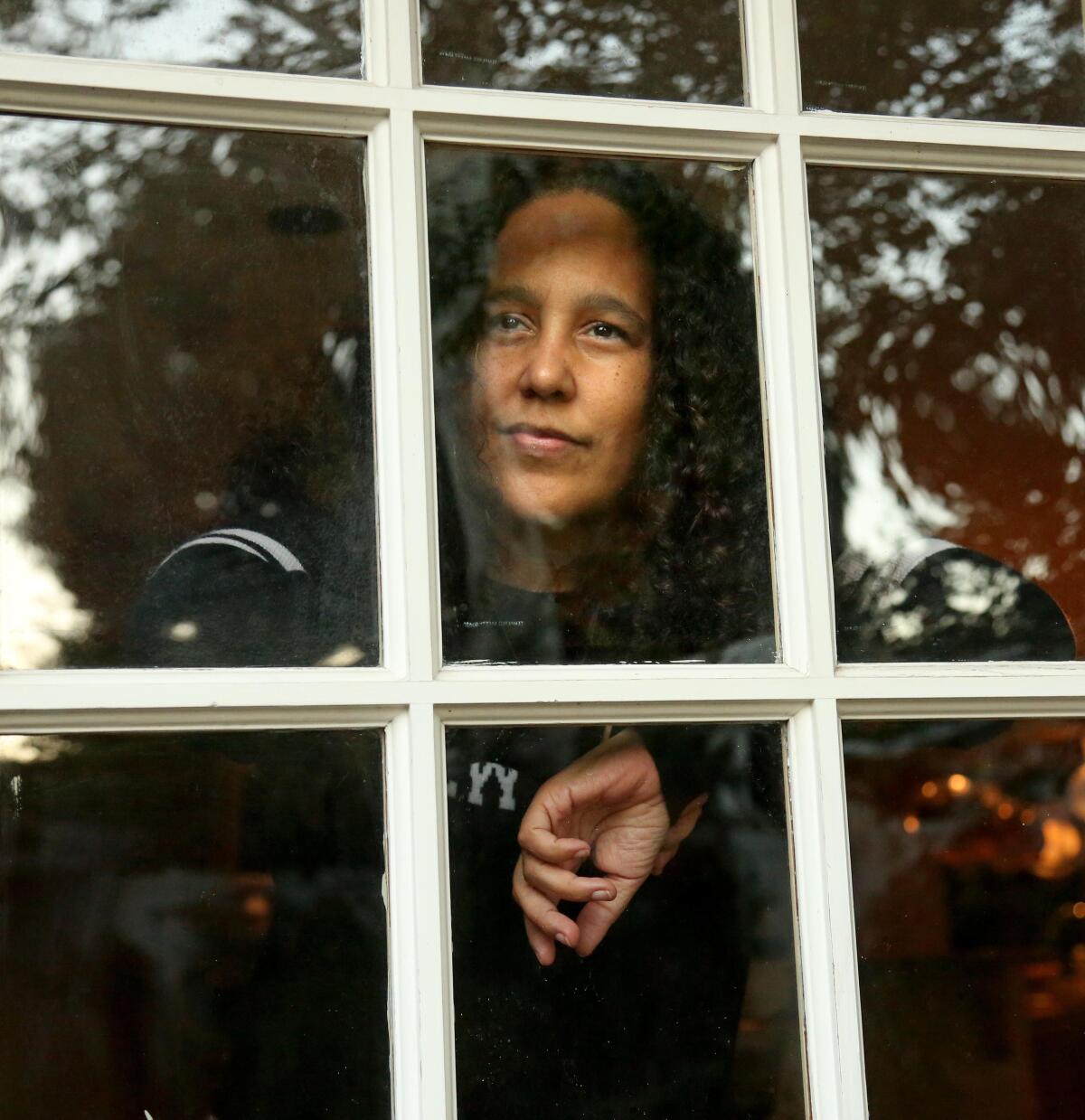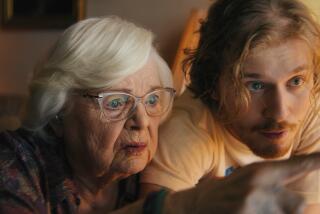For ‘Old Guard’ director, action is nothing without depth of character and story

Last summer’s “The Old Guard” is full of big deals that shouldn’t be big deals anymore. The superhero action movie stars two women, one of whom is Black. Two other members of the superheroic Guard — both men — are in love with each other. A Black woman, Gina Prince-Bythewood, directed the Netflix hit, one of the streamer’s Top 10 most popular original films. That is all, by 2020, still groundbreaking.
So let’s get to the story. Charlize Theron plays Andromache the Scythian, Andy for short, leader of a small band of warriors who have been helping people in trouble for a very long time. Centuries in fact, because Andy and her crew — Joe (Marwan Kenzari), Nicky (Luca Marinelli) and Booker (Matthias Schoenaerts) — are immortals. When the action opens, they’re being hunted for their powers.
Prince-Bythewood has a background of character-driven dramas with low budgets and high standards, including “Love and Basketball” and “Beyond the Lights.” She brings that intimate sensibility to the superhero genre, calling the film an “action drama.” “Action scenes don’t mean anything if there’s no character to it,” she says. “Then it’s just two people simulating fighting, in the same way if you’re watching a love scene and you don’t care about the characters, it’s just two actors simulating sex. How do you elevate it? By infusing it with emotion and story so that you feel and you care.”
She notes that it all starts with the script, adapted by Greg Rucka from his graphic novels. “When I got to the ‘kill floor,’ the first action scene, I was like, ‘Oh, my God, they’re coming back to life!’ And I just cared about them so quickly that it surprised me. That surprise is what got me excited about bringing that story to life.”
In the kill floor scene, the four Old Guard members are ambushed, facing down a battalion of soldiers who shoot them to death. Then, after a moment, the breathing resumes, the healing begins, and the bullets fall out of their entry points. “This is the first action scene of the film; it has to set the tone, but it’s also revealing this fantastical conceit of immortality,” she says. “I want an audience to always believe it, and feel like they’re watching real life despite that conceit, so that dictated that we were going to stay at eye level, with hand-held cameras, and play it for real.” These soldiers might not die, but they can still suffer.
Once they’ve arisen, the Guard makes short work of their confused opponents. Those in the group gracefully hand off weapons and aid each other in battle as if in a ballet. “This is the first time we’re seeing the four of them, and we see how seamlessly they work together and just militarily finish each other’s sentences,” the director says.
Meanwhile, in Afghanistan, a Marine named Nile (KiKi Layne) is killed in combat, only to revive as an immortal. She’s about to be shipped off base for testing when Andy abducts her. Nile, confused and enraged, engages Andy in a knock-down, drag-out fight aboard a cargo plane. Prince-Bythewood found the core of their conflict in the stage directions. “It mentioned how Nile was growing frustrated because she could not land a punch. And Andy gives a little smile, so we realize she’s toying with her.” Working with her cinematographer Tami Reiker, they kept within the confines of the plane, using natural lighting from the windows, “so that the audience feels like they’re in it,” the director says.
“Then in working with my incredible fight coordinator Danny Hernandez and [second-unit director] Jeff Habberstad, I had to make sure that what they were creating in terms of the fight was telling the story, with a beginning, middle and end.” The fight also shows that Nile doesn’t give up. “Despite the fact that she couldn’t get a shot in, she keeps trying; she gets humiliated, she keeps trying; she keeps getting knocked down, and she keeps coming. That says so much about Nile to both Andy and the audience about who she is, as a fighter and a person.”
Prince-Bythewood’s own athletic background came in handy in designing fights; she spent two years training in kickboxing. “Obviously, my coordinators did the heavy lifting, but the fact that I can come in and say, ‘I really need this moment, this will tell the audience about Nile if she does this,’ is just so important, especially with women, knowing that they had to look good, they had to look real, they had to look athletic.”
After the fight, one of Andy’s wounds fails to heal, a sign that her time of immortality may have ended. By the time the film reaches its climactic battle, Nile has joined the team, and at key moments, both she and Nicky step in front of Andy to shield her with their bodies — and just as crucially, Andy lets them. Once again, the small gestures paint a bigger picture. “It was such a specific choreographed dance that we put together,” Prince-Bythewood says. “But it all started with those conversations of what the scene is about.”
More to Read
From the Oscars to the Emmys.
Get the Envelope newsletter for exclusive awards season coverage, behind-the-scenes stories from the Envelope podcast and columnist Glenn Whipp’s must-read analysis.
You may occasionally receive promotional content from the Los Angeles Times.






